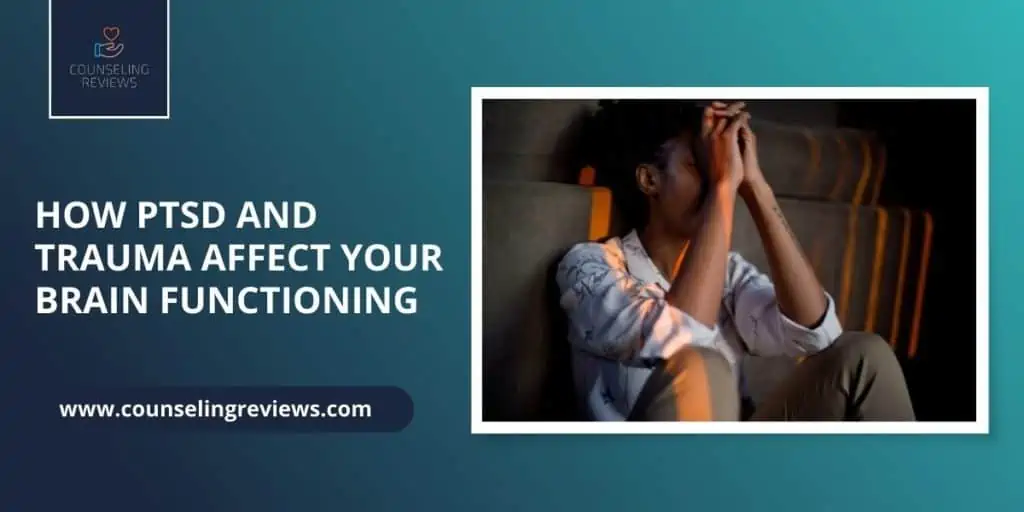The horrors of war have disturbed the minds of many young men and gave birth to the term Posttraumatic Stress Disorder (PTSD), mental health problems caused by a traumatic event that was either experienced or witnessed.
In recent decades, psychologists and neuroscientists have expanded their understanding of the effects of trauma on the brain and discovered that soldiers are not the only victims of the condition.
The trigger for PTSD can be any life-threatening incident, and most people suffering from the condition are undiagnosed.
Trauma affects the brain, and the consequences include difficulties adjusting to social life, in extreme cases, mental illnesses and the inability for self-care.

Worrying Data
The PTSD symptoms include flashbacks of the incident, nightmares, anxiety, negative thoughts, and lack of interest in activities. However, not every individual suffering from the condition will experience the same symptoms.
Neuroscientists have benefited from neuroimaging techniques pushing a new frontier towards brain exploration, trying to decipher the traumatic stress effects on the brain.
The most disturbing news from the field is in the form of statistics indicating that 6.8% of all adults will experience the condition to some degree in their lives.
Areas of the Brain Impacted by PTSD
Fear is a mind-killer!
In the case of PTSD, the effects of trauma on the brain can result in a slow and painful process of degrading the synaptic connections in the brain.
The hippocampus and amygdala are the epicenters of emotional behavior in the brain, and together with the prefrontal cortex, are the key to mental health.
Post-traumatic stress disorder can lead to atrophy of the brain
The Amygdala
The amygdala received its name from the Greek term for almond because it resembles the seed. Its core function is emotional processing, such as:
-
Recognizing danger and activating the “fight or flight” response.
-
Mobilizing the sympathetic nervous system to mount a reaction to a threat.
-
Cataloging new memories.
The Prefrontal Cortex
The prefrontal cortex enables decision-making and regulates emotional responses activated by the amygdala. It is interdependent to other brain functions, including memory unification and regulating deep sleep.
Located behind your forehead, the prefrontal cortex’s roles are:
-
Controlling awareness
-
Enabling decision-making
-
Regulating emotions
-
Initiating voluntary behavior
-
Interpreting of events
-
Inhibiting dysfunctional reactions
When the brain registers a threat, the amygdala launches a fast response by doping the body with adrenaline and glucose. If the brain’s defense readiness condition (DEFCON) level is still high, the amygdala instructs the pituitary gland to dose the body with cortisol.
Such infusion of hormones may cause a short circuit of sorts because the prefrontal cortex is debating to initiate a fight or flight strategy.
In layman’s terms, the ambitious reaction of the amygdala paralyzes the PFC from appropriately reacting to the incident.
The Consequences of Trauma
When exploring the responsibilities of different areas of the brain, the connection between how trauma affects the brain becomes clearer.
Here’s how trauma impacts the brain, causing the following issues:
1. Hypervigilance
When the amygdala is in overdrive, the resulting hypervigilance creates a constant state of anxiety, making it difficult to relax. Individuals can overreact to small triggers that cause them to re-experience their original trauma.
2. Distorted Memories
When the hippocampus is not encoding new memories with the proper context, a person experiences a mashed archive of images and emotions that they cannot understand, resulting in an inability to recall past traumatic memories and events well.
3. Increased Fear and Anger
People suffering from PTSD experience difficulty in routine everyday interactions. Scientists believe the amygdala causes this by disrupting the chemical balance in the brain, suppressing normal functioning of the prefrontal cortex, making the association between positive and negative events hard to understand.
What are 5 Common Symptoms of PTSD?
Flashbacks: Individuals may experience vivid and distressing memories or experience traumatic events through intrusive thoughts, nightmares, or sensory perceptions.
Avoidance: People with PTSD often try to avoid anything that reminds them of the traumatic event, including places, activities, or people associated with the traumatic experience itself.
Hyperarousal: This symptom involves being constantly on edge, feeling easily startled, having sleep problems, and experiencing heightened feelings related irritability, anxiety disorders or anger.
Negative changes in thinking and mood: PTSD can lead to negative thoughts about oneself or the world, loss of interest in previously enjoyable activities, feelings of detachment or estrangement from others, and difficulties in experiencing positive emotions.
Emotional and physical reactions: Individuals with PTSD may have strong and prolonged emotional reactions to triggers, with mood symptoms such as anxiety, extreme fear, guilt, or shame. They may also experience physical symptoms like increased heart rate, sweating, or trembling when reminded of the trauma.
How Healing Helps PTSD Patients
The effects of post-traumatic stress disorder on the brain can seem disastrous, but the truth is that one of the largest muscles in the body is very malleable. Neuroplasticity makes it possible to reverse any alterations with proper conditioning.
In recent years, various psychotherapies have been used in treating PTSD. Exposure therapy includes reconstruction of events and risk factors that caused the trauma, in effect attempting to condition the brain to accept that these traumatic event happened, and divesting negative connotations of potential triggers, are becoming a popular treatment.
Antidepressants are prescribed readily for symptoms, but alternatives like mindfulness interventions are getting prominence. They last up to two months and have shown promising results in decreasing amygdala volume and improving the connection between the amygdala and the prefrontal cortex.
Avoidance is a symptom of PTSD, and some individuals may require more support from family and friends before embarking on the painful journey of facing their trauma.
Bottom Line
Neuroscientists have concluded that trauma affects the post-traumatic stress disorder brain differently than those without the condition in two ways:
-
Causing hyperactivity in the assessment of potential danger.
-
Causing difficulty regulating anger and anxiety.
Effective treatments for PTSD regulate brain dysfunctions by decreasing the reactivity of the amygdala or increasing the ability of the prefrontal cortex to calm it down.
People that have successfully combated the symptoms of PTSD are truly unique, and there is no one-size-fits-all therapy. Clinical evidence suggests that patients can resolve their post-traumatic stress disorder with treatment options for reduction or total elimination of symptoms.
PTSD FAQs
Overcoming PTSD on your own can be challenging, as it is a complex and serious condition. It is highly recommended to seek professional help from a therapist or counselor who specializes in trauma and PTSD to receive appropriate support and treatment.
PTSD can have significant effects on a person’s mental, emotional, and physical well-being. It may cause symptoms such as flashbacks, nightmares, anxiety, avoidance behaviors, mood swings, difficulty concentrating, insomnia, and relationship difficulties. It can impair daily functioning, disrupt relationships, and lead to mental illness and to a decreased quality of life.
If you suspect you may be developing PTSD, it is important to consult with a mental health professional. They can conduct a thorough assessment and evaluate your symptoms, experiences, and history to determine if you meet the criteria for PTSD. Seeking professional help from mental health services is the best way to obtain an accurate diagnosis and develop coping strategy.





